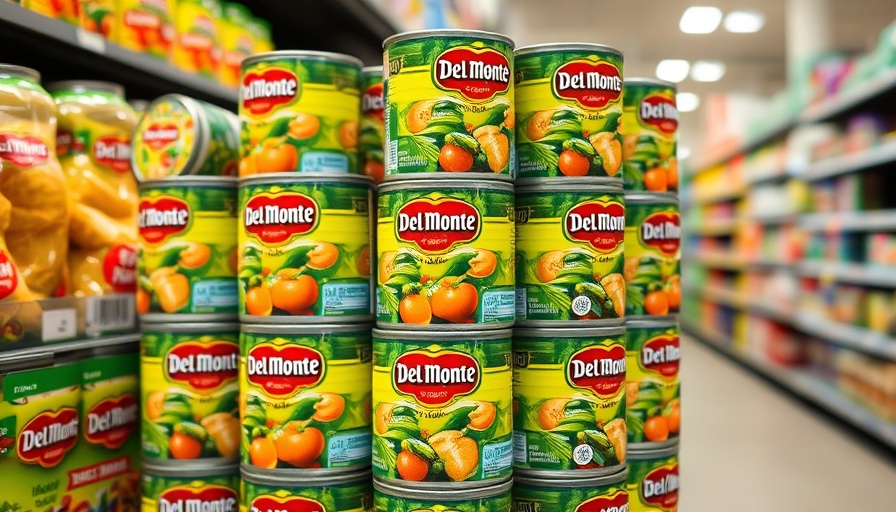
The Impact of Del Monte Foods’ Bankruptcy on Global Markets
Del Monte Foods’ recent Chapter 11 bankruptcy filing has reverberated beyond its U.S. operations, raising questions about the future of its parent company, Del Monte Pacific. With a history stretching back nearly 140 years, the popular brand's voluntary decision to restructure signals significant challenges within the food industry, accentuating the necessity for adaptable business models in today's ever-changing economic landscape.
How Chapter 11 Bankruptcy Affects Stakeholders
This bankruptcy process allows the company to reorganize while remaining under the existing management's guidance. According to CEO Greg Longstreet, this approach is aimed at accelerating the company's turnaround through judicial supervision. For stakeholders—including employees, suppliers, and shareholders—the outcome of this process will be crucial for their future interests.
Del Monte Pacific's Strategy Moving Forward
The repercussions of Del Monte Foods’ financial troubles extend to its parent company, Del Monte Pacific. The latter has decided to deconsolidate its U.S. subsidiary, meaning it no longer considers Del Monte Foods’ debts as part of its own financial obligations. This move, while strategically beneficial, could lead to a tumultuous period as Del Monte Pacific must reassess its financial engagements and future investments.
Historical Ties and Corporate Evolution
Tracing its roots back to 1926, the relationship between Del Monte Foods and Del Monte Pacific has been characterized by significant transitions. The established ties remind industry observers of the interconnectedness of global businesses. Following the 2014 repurchase of Del Monte Foods by Del Monte Pacific for $1.68 billion, the potential risks now emerge prominently in the light of this bankruptcy, prompting both companies to navigate a new corporate landscape.
The Path Ahead for Del Monte Pacific and Stakeholders
As Del Monte Pacific adjusts its strategic roadmap post-deconsolidation, it must also address its Net Receivables of $169 million from its U.S. subsidiary. In a broader sense, this situation underscores the importance of financial resilience in the food sector amidst economic fluctuations. For business professionals and investors, remaining updated on such developments will be crucial for making informed decisions moving forward.
The fallout from Del Monte Foods’ bankruptcy serves as a timely reminder of the volatile dynamics within industry sectors susceptible to economic pressures and changing consumer preferences. Professionals observing this situation should consider the implications for global market strategies and local business practices.
 Add Row
Add Row  Add
Add 



Write A Comment